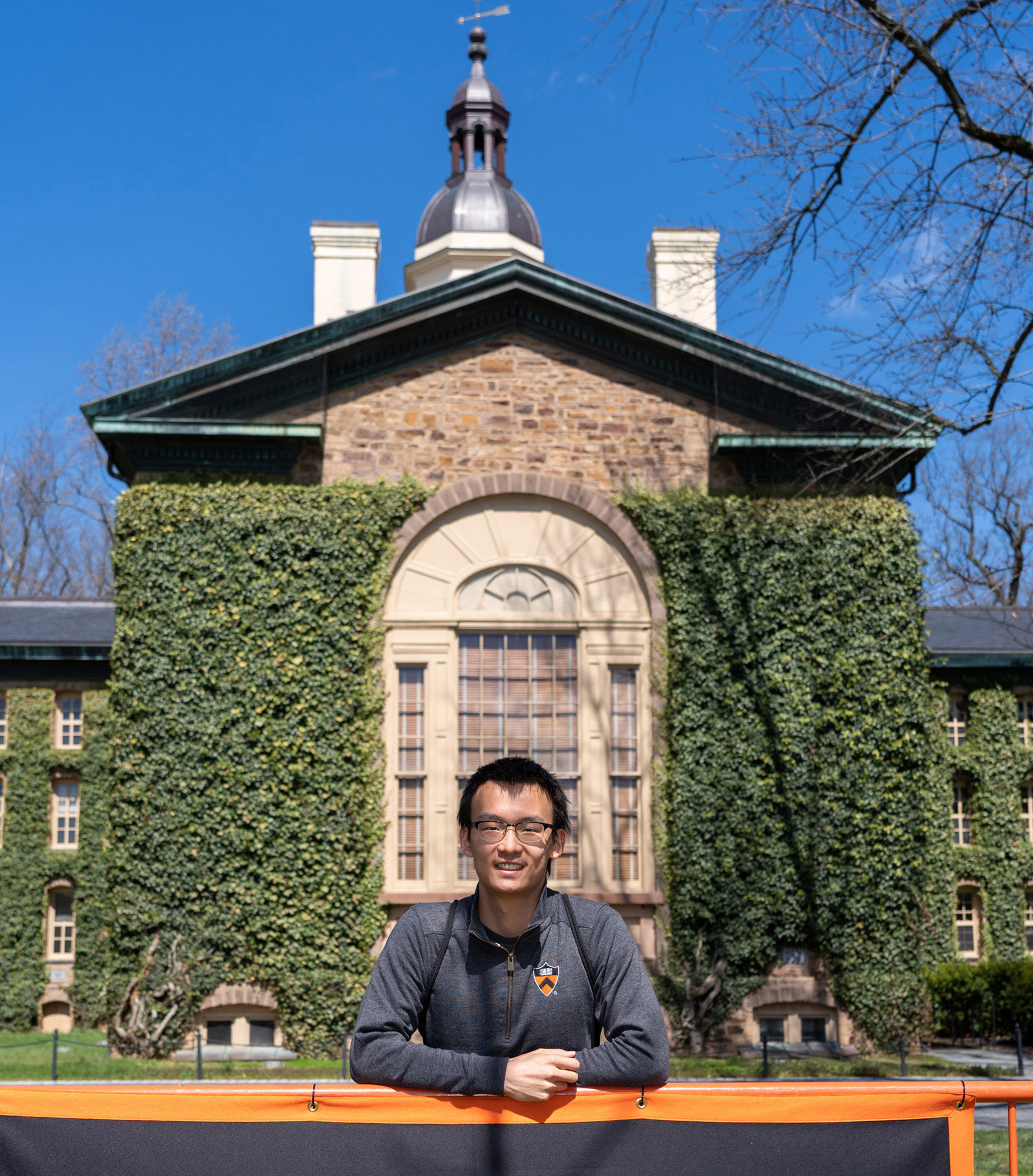“Studying at Princeton was a completely different experience”
Daniel Yang always planned to go on an exchange semester. In this article, the Bachelor’s student details his experiences at Princeton University and explains why he would strongly recommend an exchange to his peers.
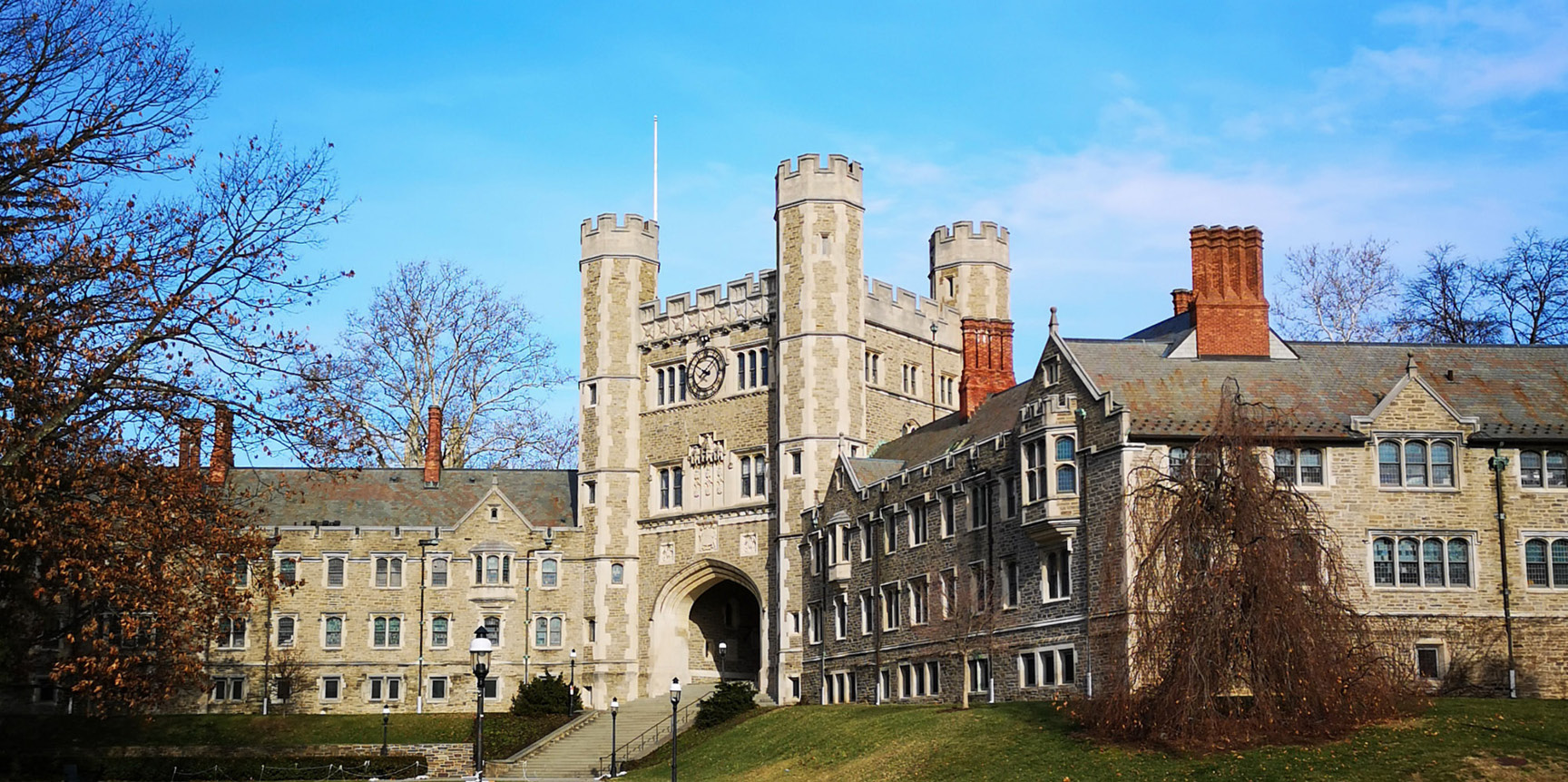
The moment I arrived at Zurich Airport coming back from the US felt like I just departed from here yesterday. The time was going so fast and my stay in the US felt like a daytrip, but filled with six months’ worth of great experiences, new friends and exciting adventures. A feeling I would have never found if I hadn’t dared to leave my familiar bubble in Zurich where I started my studies three years ago, and to head into the unknown for an exchange semester in a new country. I am very grateful to everyone who shared their study abroad experiences with me and recommended and motivated me to do one, too. Now it is the time to share my own experiences at Princeton University, hopefully helping you to answer whether an exchange semester would be something for you. If you ask me, there will be only one possible answer.
Everything started with my sister telling me: “Going on an exchange was the best thing I did as a student”. That’s when I decided to try it myself, even though I had no idea whether I would like it. When I was admitted to ETH, I was an ambitious student and tried to find an even more excellent university than ETH for an exchange semester, which wasn’t easy. For this reason, I was determined to do my best in my first year at ETH so that I would have as many options as possible without having a particular university in mind. Luckily, this plan worked well and after 1.5 years of hard work, I received my confirmation for an exchange semester at Princeton University.
What I liked most about Princeton was that studying there was a completely different experience than at ETH. First of all, Princeton follows the path of “liberal arts education”, which means that the students receive a much broader, multidisciplinary education. Typically, the students do not choose their major before the end of the second of their four years at Princeton and the first two years are similar to a “studium generale”. During these four years, everyone has to fulfil a certain number of courses from various fields like “Literature and the Arts”, “Social Analysis”, a writing seminar, a foreign language and much more, so that maybe only two out of three courses are related to your actual major. Due to the small number of roughly five thousand undergraduate students and the large variety of majors, the student body is much more diverse. Instead of only having friends from computer science, my friends at Princeton study all kinds of majors ranging from economics over public and international affairs and astrophysics to art history.
The courses at Princeton go less deep into theory and the content is less complex and more practical from an ETH perspective, even though Princeton is considered one of the theoretical universities in the US. In particular, we only had 12 weeks of lectures instead of 14 weeks, like at ETH. I felt that I probably would have learned more at ETH than at Princeton content-wise, but this does not mean that the semester at Princeton was any less challenging than at ETH. It was just different.
Food, friendships and a strong sense of community
The town Princeton itself is also quite small with a population of around 30,000 people, which makes campus life a real bubble. Since the next larger city, New York, is an hour’s train ride away, you spend almost all of your time on campus surrounded by other students. Although I was sceptical about this at the beginning, I ended up feeling really comfortable there. You get to know each other much better and a spontaneous acquaintance across a lunch table can easily develop into a good friendship, because you will likely bump into each other again when walking around the campus. You can also hang out or study with your friends for much longer, because almost everyone is living on campus and no one has to commute home.
With all the exclusive Princeton merch, on-campus events and sport competitions against other universities, there is a strong sense of togetherness creating a mutually supportive, tight-knit community. Since undergraduate studies last exactly four years for everyone, you typically start your studies with the same people that you are going to graduate with, which creates an even stronger affiliation to your class year. The affiliation is so strong that even alumni and alumnae who graduated in the 80s and earlier often return to Princeton for the big annual reunion party in May. We exchange students were treated like juniors (third-year students) and belonged to the class of 2023.
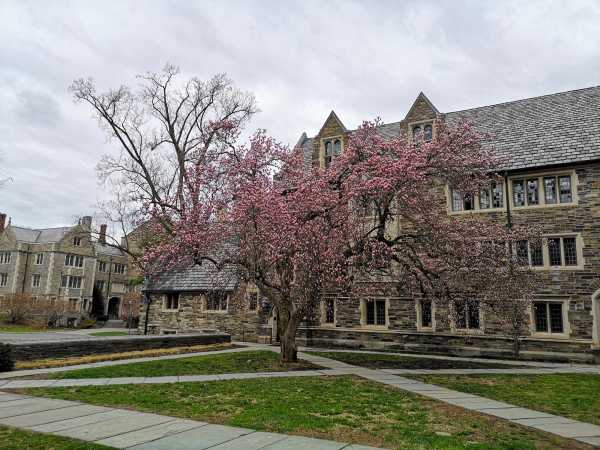
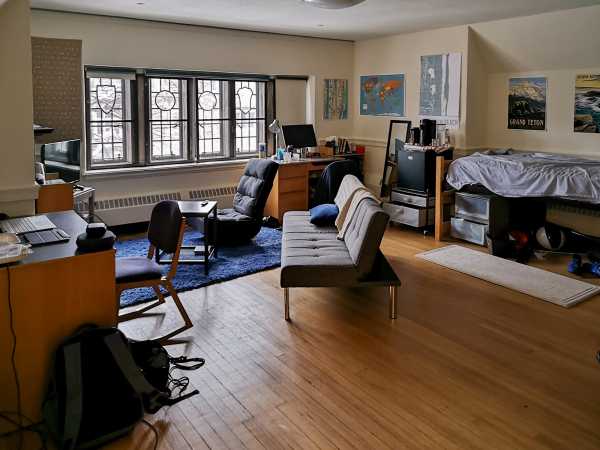
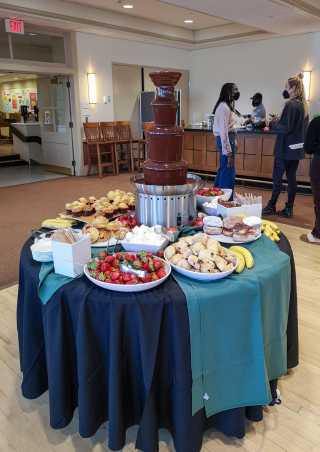
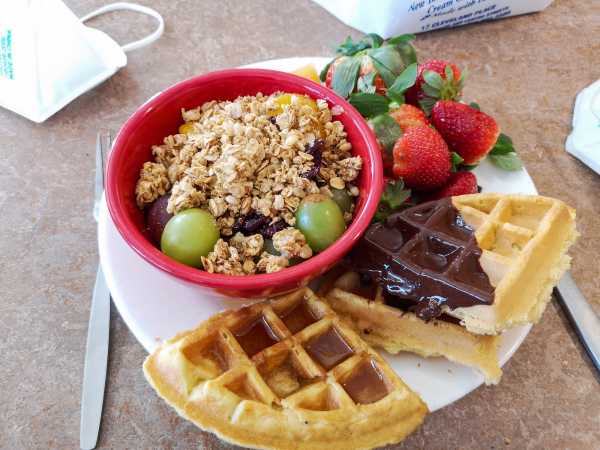
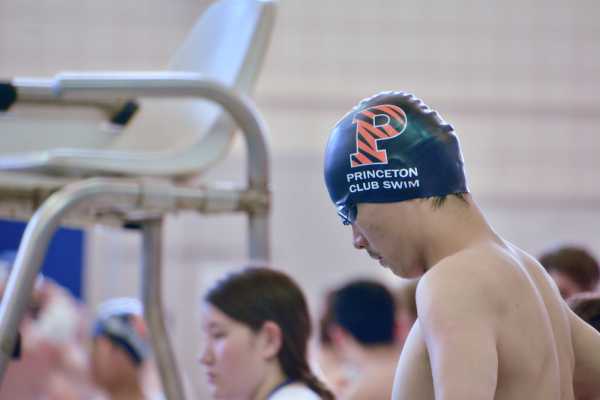
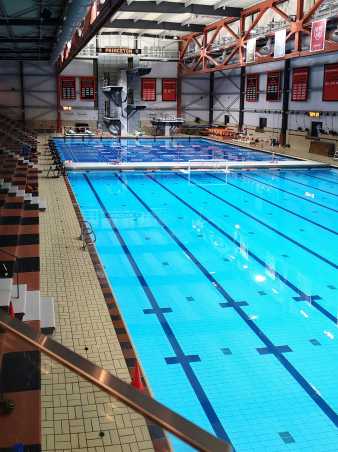
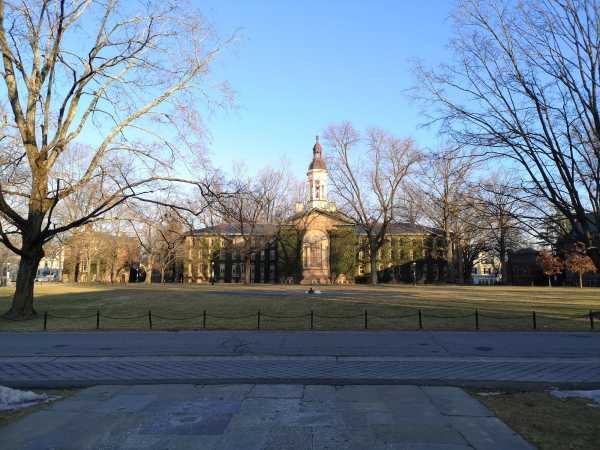
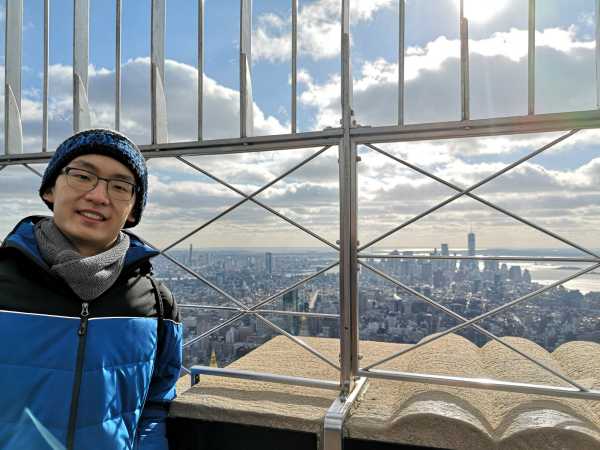
My favourite part of campus life was the food and Club Swim. Regarding the former, I had low expectations. From what I have heard from other American universities, I expected to subsist on a diet of pizza, burgers and fries. But at Princeton, it was the complete opposite. At the beginning of each semester, almost everyone must purchase a meal plan, which allows you to eat in the eight dining halls on campus for a certain number of times during the semester. In fact, it is unusual to cook by yourself and most students get all of their meals from the dining halls. At the entrance of the dining hall, you swipe your student ID to deduct one meal from your plan and proceed inside to a large all-you-can-eat buffet with an awesome salad bar, omelette station for breakfast, grill and pasta bar for lunch and dinner and even a chocolate fountain for Sunday brunch. I was surprised by the large variety of vegetarian food they offer, but also amazed by the perfection of the cookies, crunchy outside and soft inside.
Fortunately, not only is the food great in Princeton, but so too is club sport, which prevented me from having to roll myself back home. In the US, there is varsity sport for the professional athletes, who participate at national and international championships and sometimes even the Olympic Games. Club sport is more recreational, but can also be done competitively in the US, unlike in Europe. I joined Club Swim and that was one of the best decisions I made during my exchange. Not only was I able to practise four times a week in the pool right next to my dorm, but I also made a lot of lasting friendships with my teammates, with whom I spent plenty of time together during practice, competitions and in my free time.
Same but different
Besides the studies, people and all the fun, there is one crucial component of going on an exchange I have not talked about: the experience of being in a new environment! Although the US and Europe are not extremely different and my culture shock was negligible, the small differences still matter. Be it the calendar week starting with Sunday instead of Monday, which almost caused me to book an online train ticket for the wrong day; or the chlorine-tasting water from the tap, which had me looking not only for restrooms, but also for the filtered water stations; be it the complicated train schedule, which delayed our arrival in Princeton by multiple hours on our first day in the US; or restaurants only showing prices without tax, not to mention the “mandatory” 20% tip, which resulted in us always spending more money than we had planned – all of these things taught me to be more resilient against unknown environments and unforeseen struggles.
The change of environment also gave me a different perspective on both Europe and the US, allowing me to notice the good and bad sides in both environments. Without this exchange, I would not have realised how privileged it is to live in a city with fresh, drinkable tap water and almost no homeless people, but I would also not have known just how enriching it can be to have a “studium generale” for the first two years of your studies or how a strong club sport infrastructure allows you to pursue your hobby competitively during your studies.
All in all, going on an exchange is a great opportunity to escape your familiar surroundings and make new experiences, meet great people and have a lot of fun. The success of an exchange semester does not depend as much on the university you choose or get admitted to, but most of all on what you make of it. Some might enjoy the opportunity of taking courses with a stronger focus on practical applications instead of theory compared to ETH. Others might use their exchange to participate in more extracurricular activities or use the time after their exchange to travel around and explore the country. You will never know how great an exchange can be unless you give it a try.
Mobility programmes at ETH Zurich
ETH Zurich has exchange agreements with over 100 partner universities around the world – an opportunity for students to broaden their academic and also socio-cultural horizons during one or two semesters, or even conduct a Bachelor's or Master's thesis abroad. An average grade of 4.5 or higher is required. Bachelor's students must have successfully completed the second year of their studies and Master's students must have completed their Bachelor's studies at ETH.
Learn more about the requirements and the application process for computer science students: Exchange Programmes
